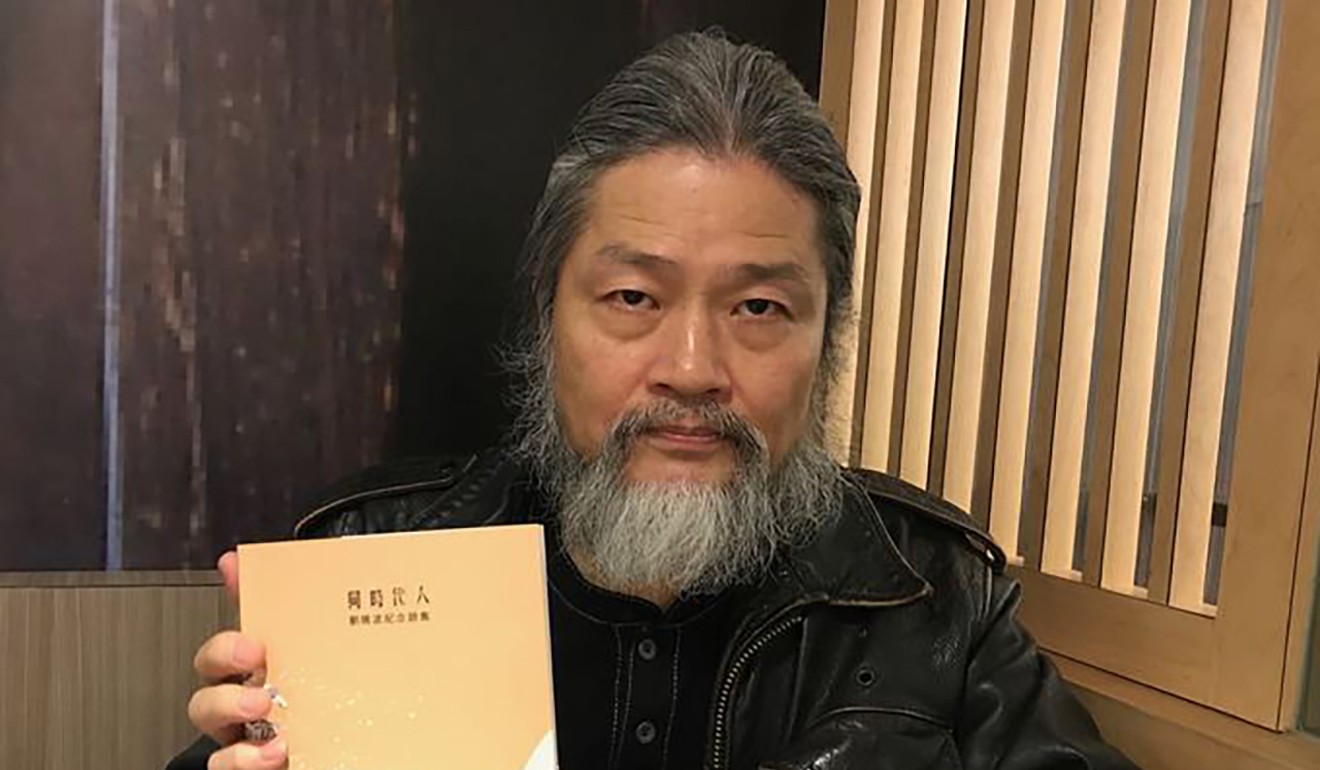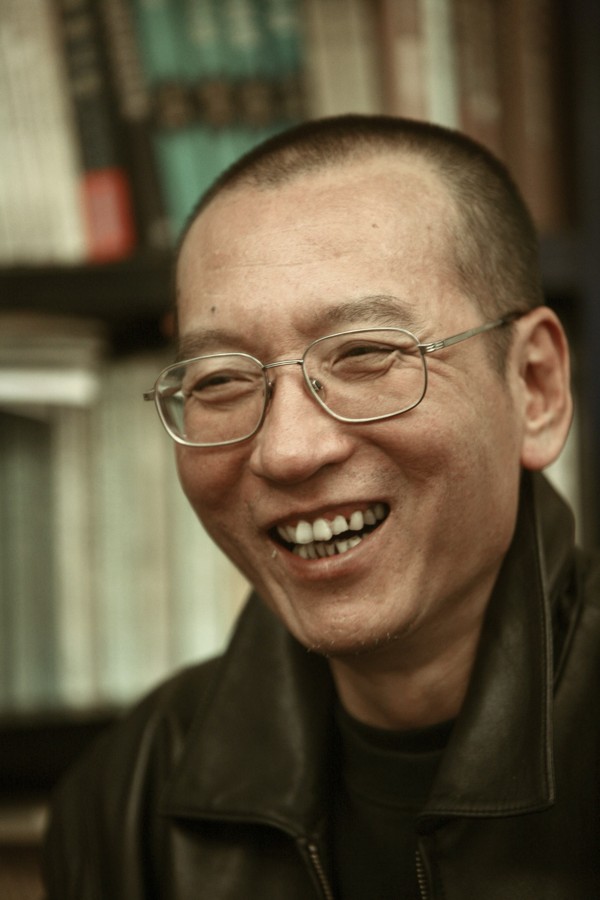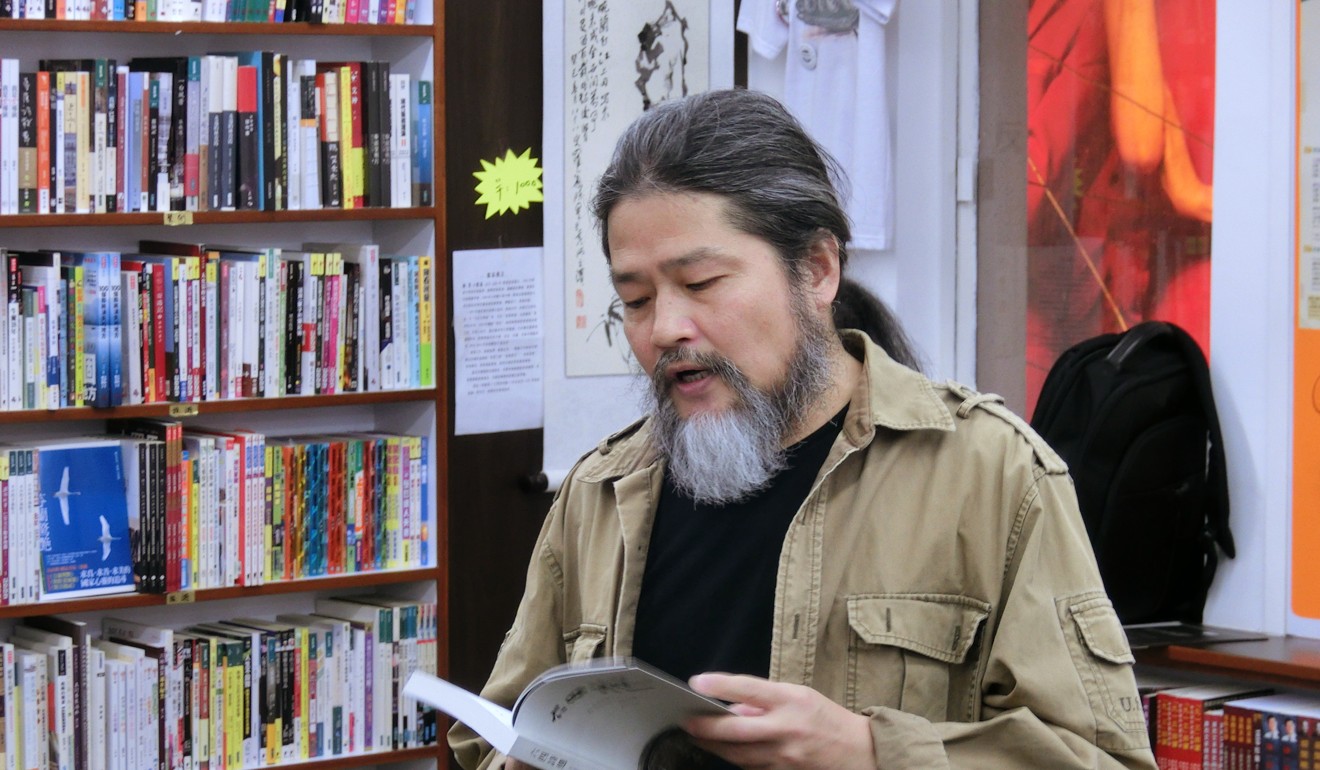
Hong Kong poet and supporter of late dissident Liu Xiaobo battles terminal cancer
Friends and artists launch campaign to raise funds for Meng Lang’s treatment
A Hong Kong independent poet and publisher who co-founded the Independent Chinese PEN Centre with Nobel laureate Liu Xiaobo is fighting for his life against terminal stage lung cancer.
Meng Lang, 57, a Hong Kong resident originally from Shanghai, has been in a generally vegetative state for about a month.
He weighs a mere 47kg, having lost 13kg since he was admitted to the Prince of Wales Hospital in mid-February and diagnosed with the deadly disease in March.
The cancer has spread to his brain.

Meng’s friends in Hong Kong and on the mainland, led by Polytechnic University anthropologist Yu Shuo, launched the fundraising campaign “Save Meng Lang” on Friday to collect donations for Meng’s targeted therapy, which could cost some HK$50,000 (US$6,370) per month and is not covered under subsidised public medical services.
Within the first 24 hours, the campaign raised around 200,000 yuan (HK$247,750) and HK$100,000, including HK$50,000 donated by internationally renown poet Bei Dao, who sold a piece of his calligraphy to raise the money, Yu said.
The campaign is set to launch a website on Monday to sell 50 art pieces donated by nearly 30 artists at home and abroad, including Yu’s husband, French painter François Bossière. All revenue from the sales will be given to Meng.
Germany, US renew calls for release of Liu Xiaobo’s widow from house arrest
Tu Chia-chi, Meng’s Taiwan-born wife and a former senior instructor of literature at Chinese University, said the poet had only about HK$100,000 in savings. After Tu retired in 2015, the couple lived in Hualien, Taiwan because of the “lower cost of living and more space”.
“He spent all his money on publishing books that he considered worth being passed on through generations,” Tu, 59, told the Post in the hospital on Sunday.
Yu called on entrepreneurs and philanthropists to help save the poet by buying the donated artwork.

“If we lose Meng … I haven’t seen any one who can inherit Meng’s career, which is to persistently fight against the power and its agents with beautiful poems and quality publications to defend the value of liberty,” Yu said.
Yu added that the money collected through the campaign to date was far from enough to cover Meng’s treatment. The poet will undergo brain surgery this week to reduce his intracranial pressure. His family hopes he can later be transferred to the oncology ward.
Meng came to Hong Kong on February 14 planning to stay for a month and launch a commemorative poetry collection he edited and published for his late friend and political dissident Liu Xiaobo, who died of cancer while in custody in Shenyang last July.
In 2009, Liu was sentenced to 11 years’ imprisonment for inciting subversion because of his involvement in writing Charter 08, a petition advocating political reform in China. In 2010, Liu was awarded the Nobel Peace Prize for “his long and non-violent struggle for fundamental human rights in China”.
But Meng never made it to the book launch or any promotion event as he was rushed to hospital on February 17 and diagnosed with cerebral oedema – an abnormal accumulation of fluid in his brain. The swelling, which made Meng dizzy and gave him nausea and headaches, was confirmed in March to be a consequence of stage four lung cancer.

Tu said Meng’s health had suffered due to his deep long-held concern for China and its people.
Meng published the first June 4 poetry collection in 2014, for the 25th anniversary of the state’s crackdown on pro-democracy movements in 1989. He was working on the second collection and preparing for the establishment of the Archive of Chinese Underground Literature and Exile Literature in Taiwan before the disease hit, Tu said.
Liu Xiaobo – the quiet, determined teller of China’s inconvenient truths
“Meng is a very important mind, a very important activist and a very important poet … I hope he can be treated in a way on par with his contribution to the Chinese literature and publication world,” Lang Zi said.
Under tight watch, widow Liu Xia marks grave-sweeping day with private tribute to Nobel Peace Prize winner Liu Xiaobo
Meng was a major coordinator when the Independent Chinese PEN Centre was formed in July 2001 with 27 founding members, including Liu Xiaobo. During his residence in Hong Kong from 2009 to 2015, Meng successively served as the chief editor of independent publishing houses Morning Bell Press and Fountainhead Press.
In bed in the hospital’s neurology ward, with tubes transporting medicines and liquid nutrition into his body, Meng lay shorn of his trademark long hair and beard. He could only open his eyes slightly from time to time and move his eyebrows when his friends’ names were mentioned.
Tu, Meng’s soft-spoken wife, leaned towards him and said gently: “Junliang (Meng’s original name), my friends in the medical profession said you have got much better. You have overcome the major obstacle, and you will only get better from now on. We are all by your side. I will never leave you.”

